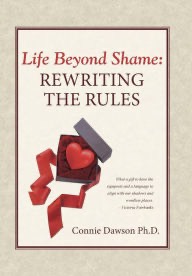“All I really wanted for my children from the very start was nothing but the best! The best of everything! I thought we were doing everything right, but not really. Sure I had concerns. Deep inside I wanted my kids to be happy, but they aren’t.”
"The kids just want more! More of everything and if they didn’t get it……what a fuss they make! I thought I was making it easier for them by doing things for them like making their beds, cleaning their rooms, doing their laundry, and when the time came, even filling out college applications.”
"Sure, we were a bit lacks when it came to enforcing the rules or requiring chores, but what parent wants to be the bad guy all of the time? This is not working!”
"I now realize I have been overindulging my children.”
Feelings Parents Have When The Light Bulb Goes On?
Parents go through a range of emotions when they realize they have been overindulging their children.
Click here to download a free download of this blog
DENIAL
The first response is denial. According to the Mayo Clinic “Denial is a coping mechanism that gives you time to adjust to distressing situations - but staying in denial can interfere with treatment or your ability to tackle challenges.”
Parents are in denial they are overindulging their children when they:
1. Won’t acknowledge a situation in which they are overindulging
2. Do not face the facts of the situation
3. Downplay possible consequences of the situation
Click here for a related story: How It Feels To Be Overindulged As a Kid by David Bredehoft
ANGER
Getting mad and becoming angry is a common reaction when parents finally realize that they have and overindulged child! After giving so much, for so long! After doing so many things for them! After letting them have their way time after time, and not showing any sign of appreciation, parents get mad! “Don’t you see, I did all of this because I love you!”
According to the American Psychological Association, “Anger is an emotion characterized by antagonism toward someone or something you feel has deliberately done you wrong. Anger can be a good thing. It can give you a way to express negative feelings, for example, or motivate you to find solutions to problems. But excessive anger can cause problems.”
GUILT
Once the bubble of denial has been burst parents usually feel a rush of guilt. Guilty for giving too much to their children; toys, trips, clothes, camps, computers, sports etc! Guilty for doing things for their children that they should have been doing for themselves! Guilty for not setting boundaries and enforcing rules, and for not making them do chores! Often you hear parents lament, “Where did we go wrong?”
Guilt can paralyze or it can generate action. It is important that the guilt parents feel from realizing they have overindulged their children motivates them to pursue a new course of action.
SHAME

My coauthor Connie Dawson in her book titled “Life Beyond Shame: Rewriting The Rules” writes the following about guilt and shame. “Guilt is about behavior, which I can change. Shame is about personhood. Shame means that I, myself, am wrong. Not just wrong. Faulty. A mistake or error in judgement on my part simply broadcasts my shame.” Like guilt, shame can be debilitating. Rather then let this overindulgence shame paralyze, use it to motivate!
After realizing that:
“I have been doing it wrong.”
“I have been way to lax with my children.”
“I have given them way to much of everything and as a result they don not know or understand what enough is.”
A change is needed:
“I need a new course of action.”
“I can find a solution.”
“I can change the rules.”
I Have Overindulged My Children - What Do I Do?
As a parent I know you are concerned and do not want to overindulge your children, but you may not know what to do instead. You may not know whom to ask. Here are a few “rock solid” things you can do to avoid overindulging your children and thus avoid the damaging effects of childhood overindulgence.
1. Read A Good Book On The Subject
ü There is more help about avoiding overindulgence in How Much is Too Much? Raising Likeable, Responsible, Respectful Children – From Toddlers To Teens – In An Age of Overindulgence (2014, DaCapo Press Lifelong Books).
2. Take A Four Free Online Courses On The Subject
üParenting in the Age of Overindulgence Online Course - University of Minnesota
Extension
This course is an exploration of overindulgence and how you can avoid it with your children.
In this course, you will:
- Learn what overindulgence is.
- Use tools to identify and address overindulgence.
- See real examples and hear ideas for addressing overindulgence in families.
This course is for:
- Parents who are unsure what overindulgence is.
- Families concerned they may be overindulging.
- Child care providers, teachers, caregivers, or other family members interacting with children.
- Professionals who work with parents and families.
üParenting with a Good Heart Online Course Part 1 - University of Minnesota
Extension
This course will give you tangible tools that you can begin to integrate into your parenting right away. It is part one of a two part course.
In part 1, you will explore these topics:
- Overindulgence comes from a good heart.
- Family values — what are they?
- Has overindulgence become the “new normal”?
- Increasing our “brain awareness.”
üParenting with a Good Heart Online Course Part 2 - University of Minnesota
Extension
This course will give you tangible tools that you can begin to integrate into your parenting right away. It is part one of a two part course.
In part 2, you will explore these topics:
- Identify the three ways of overindulging and what to do instead.
- Flip the negatives of overindulgence into positives.
- Use the Test of Four to decide if something is overindulgence.
- Use the Developmental Parenting Highway to stay on the road to success.
üDevelopmental Parenting Highway Online Course - University of Minnesota
Extension
Am I giving my child too much? Am I doing too much for my child?
Are you asking yourself those questions a lot as you struggle to meet the challenges of parenting in the age of overindulgence? If so, taking the Developmental Parenting Highway Online Course can help.
This course is for:
- Parents who are unsure what overindulgence is or families concerned they may be overindulging.
- Teachers, childcare providers, caregivers, or other family members interacting with children.
- Professionals who work with parents and families regularly.
3. Read, Understand, Practice, and Use The Test of Four
üOverindulgence: The test of four - University of Minnesota Extension
The Test of Four is a tool that helps parents and children learn about what is enough. It guides adults and children towards personal responsibility and self-control. It also encourages clear thinking and good decision making.
4. Read An Article By An Expert On The Subject
ü5 Tips for Parents to Avoid the Damaging Effects of Overindulgence — In this article, Jean Illsley Clarke discusses the concept of overindulgence, offering five tips on how to recognize it and what to do about it.
5. When In Doubt Ask For Help!
üJoin a support group.
ü Find a family life coach. Sometimes you need more than a friend’s advice. A family life coach can help you.
ü Find a therapist. Sometimes you need expert help to work through longstanding patterns of behavior. Psychology Today has an online link to help you find a therapist near you.
Do all things with Love, Grace, and Gratitude
Photos from Pexels Lisc. CCO; Graphic by David Bredehoft.



